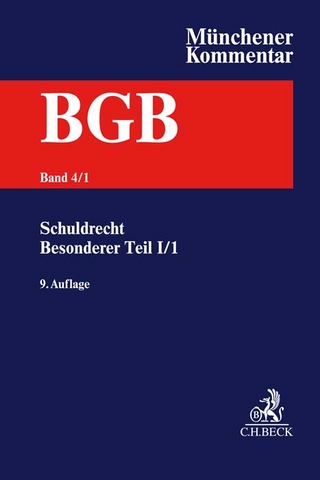
Recueil des cours, Collected Courses, Tome 381
Martinus Nijhoff (Verlag)
978-90-04-33828-9 (ISBN)
Arbitration and Private International Law, General Course on Private International Law (2015), by G. Bermann, professor at Columbia Law School.
Co-publication with: The Hague Academy of International Law. Erik Paul Trygve Jayme, né le 8 juin 1934 à Montréal, Canada, de nationalités allemande et britannique. Université de Francfort-sur-le-Main (1954-1955, droit), Université de Munich (1955-1958, droit et histoire de l’art), Université de Padoue, Italie (1958-1959, italien, bourse d’Etat); apprentissage de droit (1959-1963) ; Université de Californie, Berkeley (bourse Fulbright, 1965-1966). Premier examen d’Etat en droit (Munich, Bavière, 1958) ; Doctor iur., Université de Munich (1960) ; second examen d’Etat en droit (Hesse, 1963) ; LL.M. (Berkeley, 1966) ; habilitation, Université de Mainz ; venia legendi : droit civil, droit international privé, procédure civile internationale et droit comparé (1969). Privatdozent, Université de Mainz (1969) ; Wissenschaftlicher Rat et professeur, Université de Münster (1973-1974) ; professeur ordinaire, Université de Munich, codirecteur de l’institut de droit international de l’Université de Munich (1974-1983) ; professeur ordinaire, Université de Heidelberg, directeur de l’institut de droit international privé et commercial (1983-2002) ; professeur émérite, Université de Heidelberg (depuis 2002). Institut de droit international (membre depuis 1981, président 1997-1999 ; rapporteur sur Party autonomy, Bâle, 1991, rapporteur sur Substitution in Conflict of Laws, Santiago du Chili, 2007, rapporteur sur Internet and Invasion of Privacy, depuis 2012) ; académicien titulaire, Académie internationale de droit comparé (depuis 1987) ; membre, Heidelberger Akademie der Wissenschaften (depuis 1989) ; membre externe, Austrian Academy of Sciences (Vienne, depuis 2001) ; membre externe, Accademia Nazionale dei Lincei (Italian National Academy, Rome, depuis 2002) ; membre externe, Istituto Lombardo (Milan, depuis 2000) ; membre externe, Istituto Veneto (Venice, depuis 2004); membre, Koninklijke Nederlandse Akademie van Wetenschappen (depuis 2005), Groupe européen de droit international privé (depuis 1991), Deutsche Gesellschaft für Völkerrecht, Deutsch- Lusitanische Juristenvereinigung (président, 1991- 2005), Deutsch-italienische Juristenvereinigung (depuis 1966), Gesellschaft für Rechtsvergleichung. UNIDROIT, Rome, juge (suppléant) au tribunal administratif (depuis 2009) ; membre du comité vénézuélien d’arbitrage (Caracas, depuis 2005) ; Curatorium de l’Académie de droit international de La Haye (élection 1998, vice-président, 2004-2016). Landesforschungspreis Baden-Württemberg (1989) ; Docteur honoris causa, Université de Ferrara, Italie (1991) ; docteur et professor honoris causa, Université de Budapest, Hongrie (2000) ; docteur honoris causa, Université de Rio Grande do Sul, Porto Alegre, Brésil (2003) ; doctor honoris causa, Université de Montpellier, France (2003) ; ordem do Infante Dom Henrique no grau de grande oficial, Portugal (2005) ; docteur honoris causa, Université de Coimbra, Portugal (2007) ; ordem du Cruzeiro do Sul, Brésil (2008). George A. Bermann, born 2 December 1945, in Fall River, Mass. (USA), US nationality. Yale University (1963-1967, B.A.), University of Sussex, UK (1967-1968, Marshall Scholar), Yale Law School (1968-1971, J.D.), Columbia Law School (1974-1975, LL.M.). Attorney, Davis Polk & Wardwell LLP (New York, 1971-1974). Professor, Columbia Law School (1975-2016), Director of the Center forInternational Commercial and Investment Arbitration (CICIA) (2012-2016), Director of the European Legal Studies Center (1988-2014), Jean Monnet Chair of European Law (2000-2016), Affiliated Professor, Ecole de droit de l’Institute des sciences politiques Paris (2011-2016), Visiting Professor at Georgetown Law Center (Washington DC, 2011-2016), Professor in MIDS Program (Masters in International Dispute Settlement, University of Geneva, 2012-2016), Tocqueville-Fulbright Distinguished Chairholder, University of Paris I and Ecole de droit, Institut des sciences politiques (2006), Visiting Professor, Universities of Paris I and Paris II (1998-2010), Visiting Professor, New York University Law School (2001), Visiting Professor, Tulane Law School (1998), Visiting Professor, Collège d’Europe (2004-2013), Doctor honoris causa, University of Fribourg, Switzerland (2008), Doctor honoris causa, Université de Versailles-St. Quentin (2011), Doctor honoris causa, Universidad César Vallejo, Lima, Peru (2016). Chief reporter, American Law Institute, Restatement of the US Law of International Commercial Arbitration, Chair of Global Board of Advisers, New York International Arbitration Center (NYIAC) (2012-2016), Director, American Arbitration Association (2008-2016), Board of Advisers, Center for Conflict Prevention and Resolution (CPR) (2014-2016), Advisory Committee to US State Department Luxembourg Seminar on a US Supreme Court-European Court of Justice Dialogue (2012-2016), Founding Member, Governing Board, International Chamber of Commerce, Court of International Arbitration (2012-2014), Member, Standing Committee, International Chamber of Commerce, Court of International Arbitration (2015-2016), ICC Commission on Arbitration (2011-2016), President of Board, Center for International Investment and Commercial Arbitration, Lahore, Pakistan (2014-2016), President of Board of Directors, Thai International Arbitration Center (2015-2016), Member and President of the Académie internationale de droit comparé, President of the American Society of Comparative Law (2010-2016). Distinguished service award, American Foreign Law Association (2008), Honorary President, American Society of Comparative Law (2004), Lifetime achievement award, American Society of Comparative Law (2016). Member, Comité français de droit international privé (2010-2016), Member, Comité scientifique of the Revue de l’arbitrage (Paris) (2011-2016), Member, Academic Council, Institute for Transnational Arbitration (2006-2014), C.V. Starr Award, New York Law School (2009), Honorary Member, American Bar Association, Section of Administrative Law and Regulatory Practice (2008), Member, Advisory Committee, ALI, Restatement (3rd) of Conflict of Laws (2014-2016), Foreign Relations Law of the United States, Honorary Member, American Association of Private International Law (ASEDIP) (2009). Founder and President of the executive editorial board, Columbia Journal of European Law (1992-2016), co-editor in chief, American Journal of Comparative Law (2004-2006), co-editor in chief of American Review of International Arbitration (2011-2016).
Les langues et le droit international privé, par E. JAYME, professeur émérite à l’université de Heidelberg
Table des matiéres:
IIIII. Introduction: la langue comme élément essentiel de l’identité de la personne – langue et nation
IIIII. Pasquale Stanislao Mancini
IIIII. La langue maternelle : élément subsidiaire pour déterminer la loi applicable – le droit international privé classique
1. La double nationalité
2. La résidence habituelle
3. Les contrats : langue et choix tacite de la loi applicable
IIIV. Le « risque linguistique » – la méthode de l’adaptation de la loi applicable
IIIV. L’application des lois qui imposent l’usage d’une certaine langue: question de forme ou de substance en droit international privé ou l’application nécessaire des «lois de police»
IIVI. La langue choisie par les parties et les notions du droit non applicable
IVII. Le contrat «anglais»
VIII. La clause contractuelle sur la langue
IIIX. Synthèse
Arbitration and Private International Law, General Course on Private International Law (2015), by G. BERMANN, Professor at Columbia
Law School
Excerpt of table of contents:
Chapter I. International commercial arbitration as a private international law enterprise
A. Introduction
B. International Arbitration as a distinctive private international law enterprise
Chapter II. Arbitral jurisdiction and the arbitration agreement
A. Introduction : personal and subject matter jurisdiction in the arbitration setting
B. Jurisdiction by consent : the arbitration agreement
C. Jurisdiction to determine arbitral jurisdiction
Chapter III. Choice of law governing the arbitration agreement.
A. Introduction
B. Choice of law approaches
C. Multiplicity in the choice of law governing the arbitration agreement
D. General attitudes toward arbitration
E. Jurisdiction and arbitrability
Chapter IV. The lex arbitri and the arbitral seat
A. Introduction
B. Differences between arbitral seat and litigation forum
C. The role of the seat in “hosting” an arbitration
D. Determining the seat of an arbitration.
E. Delocalization
Chapter V. Parallel litigation and arbitration
A. Introduction : parallel litigation and parallel jurisdiction
B. Basic parallel litigation questions.
Chapter VI. Choice of substantive law
A. Introduction
B. Comparing choice of law in litigation and arbitration
C. Party agreement on choice of law
D. Choice of law in the absence of party agreement
E. Non-State law
F. Characterization of the law : substantive or procedural?
G. Error in choice of law
H. Ascertaining the content of foreign law
Chapter VII. Limits to party autonomy in choice of law
A. Introduction
B. Disregarding the parties’ choice of law
Chapter VIII. The award
A. Introduction
B. What is an award?
C. Majority awards and dissents
D. The form of awards
E. Forms of relief
F. The preclusive effect of arbitral awards
G. The precedential value of awards
Chapter IX. Annulment of awards
A. Introduction
B. The nature of annulment
C. Annulment grounds
D. Choice of law applicable to the grounds for annulment
E. Party Autonomy to vary the standards for annulment
F. Preclusive effect of prior determinations on grounds for annulment
G. Recognition and enforcement of annulled awards
Chapter X. Recognition and enforcement of arbitral awards
A. Introduction
B. Recognition and enforcement of judgments and arbitral awards
C. Recognition and enforcement under the New York Convention
D. Judgment recognition as an alternative to award recognition
| Erscheinungsdatum | 07.03.2017 |
|---|---|
| Reihe/Serie | Collected Courses of The Hague Academy of International Law - Recueil des cours ; 381 |
| Sprache | englisch; französisch |
| Maße | 155 x 235 mm |
| Gewicht | 857 g |
| Themenwelt | Recht / Steuern ► EU / Internationales Recht |
| Recht / Steuern ► Privatrecht / Bürgerliches Recht ► Internationales Privatrecht | |
| ISBN-10 | 90-04-33828-4 / 9004338284 |
| ISBN-13 | 978-90-04-33828-9 / 9789004338289 |
| Zustand | Neuware |
| Haben Sie eine Frage zum Produkt? |
aus dem Bereich


